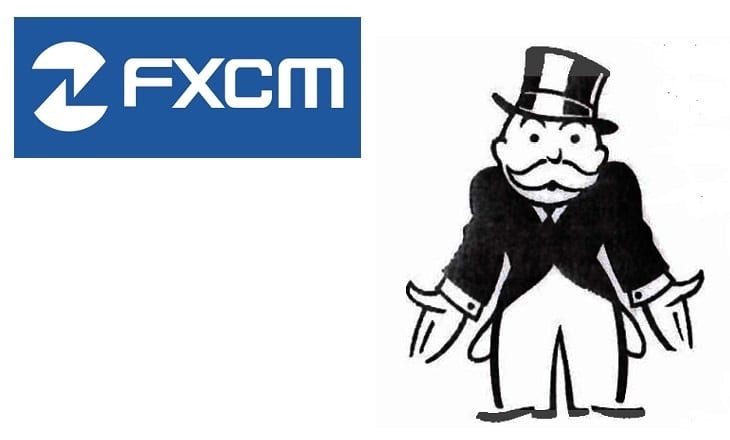Following the close of equity markets in the US on Friday afternoon, Global Brokerage Inc (NASDAQ:GLBR), formerly known as FXCM Inc, announced that it will be filing for “Chapter 11” protection under the United States Bankruptcy Code, as part of a planned reorganization of the company.
Global Brokerage’s main asset is its 50.1% holding in FXCM Group LLC, which operates the FXCM Retail FX brand.
LeapRate readers shouldn’t be that surprised from Global Brokerage’s decision. As we have written numerous times over the past few months, most recently in early October, Global Brokerage has been facing the delisting of its shares from the NASDAQ Global Market, which would then trigger an event of default on the company’s $172 million of outstanding Convertible Notes – requiring the company to repurchase all of the Convertible Notes for cash.
Cash, which it doesn’t have.
With the October 30 deadline for Global Brokerage to fulfill its Nasdaq listing conditions passing, it was basically inevitable that the company would need to restructure its balance sheet in some form, if not declare outright bankruptcy.
It seems that, with the help of other involved entities including FXCM Group and Leucadia National Corp (NYSE:LUK), Global Brokerage has opted for the former option, and has agreed with its convertible note holders to restructure the debt and cut costs.
Different from a “regular” bankruptcy reorganization, in which shareholders are mostly if not totally wiped out while a company’s creditors take over ownership, it seems as though Global Brokerage shareholders aren’t really giving up anything, and will still own all of the equity of the company. The reorganization will see Global Brokerage’s (main) debt, its $172 million of outstanding convertible notes, exchanged for non-convertible notes, while the company will also be able to reduce its overall expenses.
Global Brokerage plans to continue to pay in full all administrative expense claims, priority tax claims, and priority claims, as well as all undisputed trade obligations. Again, not your typical bankruptcy reorganization.
The company’s full press release relating to its restructuring can be seen here, but in summary:
- The convertible notes will be exchanged for “regular” five-year non-convertible notes, carrying a higher rate of interest, 7% instead of 2.25%. That seems to have been the “carrot” necessary to get the noteholders to agree to the deal.
- At least two-thirds of the convertible note holders need to approve the plan. However Global Brokerage stated that the current plan was already agreed upon by holders of more than 68.5% of the convertible notes.
- While Global Brokerage will in the near term move its share listing to the Nasdaq Capital Market, meant for small cap companies, as part of its restructuring the company intends to deregister its common stock under the Securities Exchange Act and terminate its duty to file periodic reports with the SEC, such as quarterly and annual reports. As a result of deregistration, Global Brokerage expects its annual expenses to be reduced.
- Longtime employees and members of management David Sakhai and Eduard Yusupov will resign from their positions as members of the Board. As well, Chief Accounting Officer Margaret Deverell, CFO Robert Lande and General Counsel David Sassoon will resign from Global Brokerage to allow each of them to focus their priorities in these roles to the operating company FXCM Group. That will also help Global Brokerage to cut costs.
So, as per the title of this article, What does this all mean for FXCM?
The answer is, not much, really.
The operating company FXCM separated a long time ago from the (parent) publicly traded company Global Brokerage. From FXCM’s perspective, the company’s effective second largest shareholder is restructuring as it had too much debt on its books relative the the value of its holding in FXCM.
The negotiations seem to have actually helped FXCM, in that as part of the overall agreement, its own debt to Leucadia has been extended by one year.
FXCM and Leucadia – which as we’ve written numerous times has been effectively calling the shots at FXCM since rescuing the company with a $300 million loan in January 2015 – put out a joint statement following the Global Brokerage Chapter 11 announcement, stating that it is “positive news for FXCM as it allows us to put GLBR’s distractions behind us.” FXCM CEO Brendan Callan also said that Leucadia’s support and loan extension “allows FXCM to appropriately balance debt repayment with our growth and innovation plans.” The full FXCM-Leucadia statement can be seen here.
For its part, FXCM has been “humming along” and, at about $200 billion of monthly FX trading volumes, FXCM remains one of the world’s largest Retail FX brokers.
